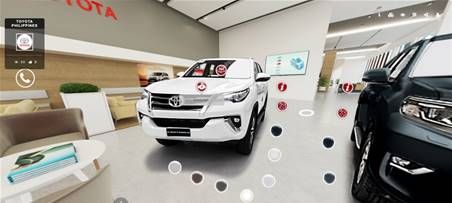By Dr. Jenny Lind Elmaco
COVID-19 is a global health issue and while it continues to plague the world, it underscores the need for getting countries together as well as bringing science and diplomacy. The importance of science in making decisions on our shared concerns as a global community cannot be underestimated as we have more chances of addressing our common challenges if we amplify the scientific voices when we engage with our neighbors and as we deal with the pandemic in the country. Science diplomacy, during the Madrid Declaration on Science Diplomacy facilitated by S4D4C, is taken “as a series of practices at the intersection of science, technology and foreign policy.” While there is no single definition for this concept and is not new, it is important to recognize the increasing role and relevance of science in world politics. Scientists provide critical contributions in ensuring decisions are data-driven and evidence-based as we tackle dilemmas across countries. Moreover, scientists have the ability to monitor and provide advice to policy actions in the international arena.
My former Professor Luk Van Langenhove, former Director of the United Nations University (UNU-CRIS) in Bruges, stated that we are in a new era of multilateralism where we have indicators of success in meeting global goals against global problems and where the science and tech community fully participate in. The synergy of science and diplomacy is indispensable in order for an informed and coordinated strategy to reach, for example, the Sustainable Development Goals.
H.E. Ambassador Driesmans, EU Ambassador to ASEAN remarked that, “COVID-19 has shown us that international collaboration in the field of research is now more crucial than ever. No country, no region can tackle these challenges alone. This is a principle that the research community has always known.” He said this during the launch of the EU’s Research & Innovation Programme ‘Horizon Europe’ in ASEAN held virtually last July. Horizon Europe is the EU’s key research and innovation program which aims for the creation and improvement of sharing excellent knowledge and technologies. The event organized by the EURAXESS ASEAN and supported by the European Commission attracted over 600 researchers from 47 countries in ASEAN, the European Union and beyond. The program, with an overall budget of €95.5 billion will run from 2021-2027, is designed to focus on some of the world’s biggest challenges, from cancer and climate change, food security,green and digital transformation, etc. The program offers researchers in ASEAN the possibility to collaborate with large European projects, as well as to apply for generous grants available to researchers who wish to conduct their work in Europe. It also presents opportunities for entrepreneurs and innovators.
Speaking in the same event, H.E. Ambassador Singh, Deputy Secretary-General for ASEAN Economic Community shared that, “the future of ASEAN depends on how effectively we marshal our collective knowledge, our expertise and our resources to deal with all these challenges moving forward.”
In her Keynote Speech, Ms Nienke BUISMAN, Head of Unit, Directorate-General for Research and Innovation, Global Approach & International Partnerships, European Commission emphasized that “closer global collaboration in research and innovation means that we will be stronger in jointly finding solutions to societal challenges such as climate change, pandemics, the digital transition and aging societies. For the EU international collaboration in research and innovation is a key priority.”
Partnerships and multinational cooperation especially on areas of great interest to foreign policy such as global health, the environment, security would benefit greatly from scientists and researchers. The convergence of science and diplomacy needs to be strengthened as we collectively respond to end the crisis we are in and as we move forward to build a stronger, healthier and better world together.
* * *
Dr. Jenny Lind Elmaco is Regional Coordinator of EURAXESS Worldwide, an initiative supported by the European Commission to promote international research collaboration. She is the Vice Chair for Asia Pacific of the Global Women Inventors and Innovators Network and received the Marie Curie Social Impact Award recently.
Full details of the Horizon Europe event including agenda, speakers’ details and event recordings are available on the EURAXESS ASEAN website.
https://euraxess.ec.europa.eu/worldwide/asean/horizon-europe-launch-event-asean-information-partnering-brokerage and https://euraxess.ec.europa.eu/worldwide/asean/horizon-europe-launch-event-virtual-partnering-brokerage-asean-draws-600-people














